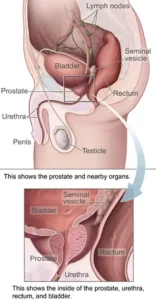Overview
Diagnosis of Anorgasmia
To diagnose anorgasmia, your healthcare professional — often a primary care provider or gynecologist — will review your medical history and perform a general medical and pelvic exam. These evaluations can help detect any underlying physical conditions that may interfere with orgasm.
Your healthcare provider may also ask detailed questions about your sexual history and experiences, including:
-
Recent and past sexual experiences
-
Your partner or partners
-
Emotional feelings toward sexual experiences
-
Types of stimulation and sexual activity
In some cases, you may receive a questionnaire to help provide more insight. Your healthcare provider may also talk with your partner separately to better understand the situation.
Treatment of Anorgasmia
The treatment plan for anorgasmia depends on its underlying causes. It may involve lifestyle changes, therapy, and sometimes medical treatments. Addressing contributing medical or psychological factors is often the key to improvement.
Lifestyle Changes and Therapy
Education
Learning about sexual anatomy and how your body responds to stimulation can help address misunderstandings and build confidence. Your healthcare provider may recommend reading materials or guided discussions.
Directed masturbation
This approach involves guided exercises at home to help you understand your own body and identify what kind of stimulation works best. Once you learn what brings pleasure, this can be shared with your partner.
Sensate focus
This couples-based therapy begins with nonsexual touch and gradually progresses to more intimate stimulation. It aims to enhance communication and understanding between partners.
Changes in sexual positions
Altering sexual positions can increase clitoral stimulation during vaginal intercourse, which may enhance orgasmic response.
Sexual enhancement devices
Tools like vibrators, air-pulsating stimulators, or suction devices can help increase blood flow and sensitivity. These can be used alone or with a partner to explore what works best.
Cognitive behavioral therapy (CBT)
Individual or couples therapy can help address emotional or psychological barriers to orgasm. CBT focuses on improving sexual communication and reducing anxiety or negative thought patterns related to sexual activity.
Medical Treatments
While medications are not a primary treatment for anorgasmia, hormone replacement therapies may be considered in some cases, especially during or after menopause.
Estrogen therapy
Low-dose vaginal estrogen creams or suppositories can improve blood flow, lubrication, and sensitivity. However, long-term oral estrogen use may increase the risk of breast cancer or cardiovascular disease and must be carefully monitored.
Testosterone therapy
For some women with low testosterone levels, hormone therapy may enhance arousal and orgasmic function. Side effects can include acne, increased body hair, lower HDL (“good”) cholesterol, and similar risks associated with estrogen therapy.
Key Takeaways
-
Anorgasmia can be caused by physical, psychological, or relational factors.
-
Education, communication, and self-awareness are essential parts of treatment.
-
Sexual enhancement devices and therapy can help many individuals.
-
Hormone therapy may be considered in select cases, under medical supervision.
-
Early evaluation and open conversations with healthcare providers can improve outcomes.
Advertisement

